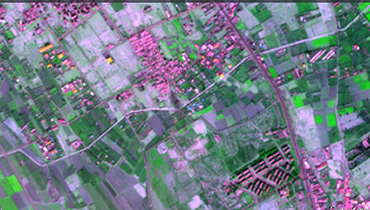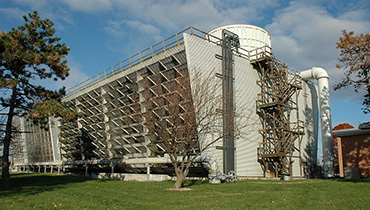2016- The role of producers' organizations in the implementation of sustainable farming practices by Costa Rican coffee farmers
| Doctorando: | Anna Snider |
| Nacionalidad: | Estados Unidos de América |
| Universidad: | Universidad Politécnica de Madrid |
| Facultad/Escuela: | E.T.S.I. Agronómica, Alimentaria y de Biosistemas y E.T.S.I. Montes. Forestales y del Medio Natural |
| Año: | 2016 |
| Calificación: | Sobresaliente |
| Directores: | Ana Afonso Gallegos y Guy René Faure |
| Enlace: | Texto completo |
ABSTRACT
Voluntary certifications offer consumers information on the process in which products are produced. Farmers’ organizations play an important role in the management of certifications and in smallfarmer access to certified markets. Costa Rican farmers’ organizations have a long history of participation in the certified value chain and in fomenting small farmers’ access to certified markets. Farmers’ organizations also make strategic decisions related to the organization’s participation in the certified value chain and how farmers are supported and incentivized to join. For these reasons Costa Rica provides an interesting milieu to study how farmers’ organizations manage certifications. Because of their importance in the certification process in Costa Rica, this research focuses on cooperatives and consortia of cooperatives. Considering the gap in knowledge regarding the role of cooperatives and voluntary coffee certifications, this thesis presents the following questions: What is the role of cooperatives in the management of voluntary coffee certifications?, What are the advantages and disadvantages of participation in voluntary certifications for cooperatives?, What changes do certifications induce at the cooperative and farm levels?, What social aspects in Costa Rica influence the management and effectiveness of certifications? Administrators from twenty of the twenty-two coffee cooperatives in Costa Rica were interviewed to obtain basic data on harvest size, membership and management and participation in certifications. Four cooperatives were selected for in-depth case studies. Certifications are often criticized for not eliciting widespread change at the farm level due to the selection of compliant farms, but it is the structure of the certifications, including low demand, weak and variable price incentives, high costs of auditing and high requirements for management and training, which incentivize cooperatives to choose individual certifications. In Costa Rica, voluntary coffee certifications promote small but real benefits to cooperatives and their members. Cooperatives make decisions about the management of certifications based on their business strategies, the type of coffee they produce and the social capital inherent in the cooperative, which is manifested as a group solidarity approach or a commercial approach. Certifications incite a more holistic approach to coffee production by requiring training and services related to sustainable production. Certifications encourage cooperatives to collaborate with other stakeholders, increasing their connectedness and organizational social capital. This gives members access to new knowledge and services and has the potential to create a virtuous cycle of the production of social capital. Certifications, however, may induce cooperatives to offer additional services or financial incentives to some members and not to others. A high level of social capital is needed at the administrative













